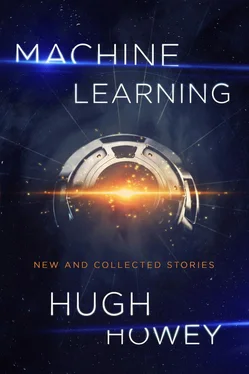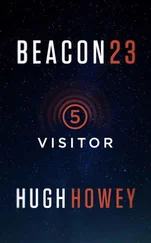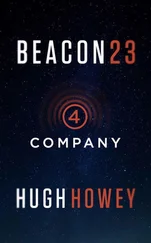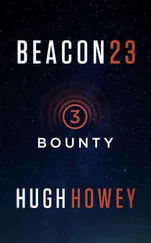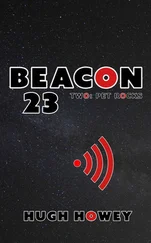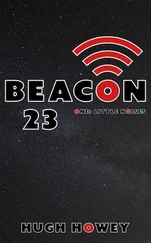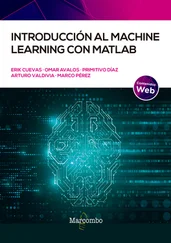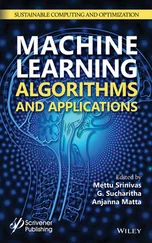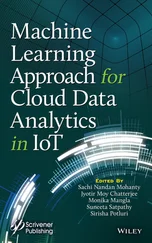“Because,” Stained says, curling a finger, and peering in at her.
“Yes,” Montana agrees.
“Because.” She laughs, and almost feels free.
9
A plane disappears into an office building, and bombs erupt everywhere at once. In London and Baghdad, in Spain and Afghanistan, every bomb that ever was and ever will be detonates in unison. All the same bomb.
The Tralfamadorians see time stretched out in all directions. They see a people who can do nothing but make joyous fists. Something is wrong with those who don’t. Something is terribly wrong with those who don’t. And where are the more like them?
It is July 6, 2001, and I am on the deck of the motor yacht Symphony. There is a stranger beside me, a beautiful girl; I do not know her name. She is a dancer, one of the high-kicking Rockettes, and we have exchanged smiles more than once over the course of the night. I join her on the bow. It is a warm evening on the Hudson. I have yet to meet my wife, Amber, in whom I will find peace. Symphony turns away from the Statue of Liberty and aims for Manhattan, steams through those lapping waters toward a skyline alight, toward those tall pillars of gleaming glass that blot out the blackest sky.
At that moment, a stranger leans in and kisses a boy, and the universe has never been so right. If time could be lived in a single dimension, there is where I would be. A boy and a city whole. But it is a man who writes this, every word of it true. And in that bright blue and empty sky where shade used to shelter my toil, I take solace in the wisdom of Montana Wildhack—who knows that nothing in the past can keep her from being free.
AFTERWORD
This is by far the most difficult thing I’ve ever written. It’s the only time I grossly missed a self-imposed deadline, and what is little more than a novelette took longer to compose than most of my full-length novels. The final 10,500 words required that I first write about 100,000, composing and recomposing passages over and over again, crafting and deleting, until I ended up with the piece I submitted.
In 2014, Amazon launched a new program called Kindle Worlds, which allows fans to write stories based on their favorite characters and worlds. My Silo series was included in the program, and Amazon was also interested in me writing for one of the other “Worlds.” When I saw that Kurt Vonnegut’s works were included in the program, I expressed interest. I think I knew from the start what I wanted to write; it just took me a while to admit it to myself.
Slaughterhouse-Five is not my favorite of Vonnegut’s works—that would be Cat’s Cradle —but it is the most powerful. Semi-autobiographical, Slaughterhouse-Five allowed Vonnegut to write about the bombing of Dresden, which he survived, by approaching it askance. I like to imagine that writing the novel was both difficult and cathartic for him. Because “Peace in Amber” was both for me. It was the first time I tried to write a detailed account of my experiences on September 11, 2001.
All of the details in the story you just read are as accurate as I can make them. Writing it down, I bawled. Some days, I just sat with my laptop and cried, not knowing what to write. Like my pain for years, I hid the process from those around me. By the time my girlfriend got home from work each day, my face was dry. I tried to not look tired. There were other days that I shuffled around the house muttering to myself that life wasn’t worth living. Through it all, I wrote and deleted. Wrote and deleted. It’s impossible to convey to you, reading this, how different writing felt at the time.
I’ve always beaten deadlines by a mile. This one came and went. But slowly, the form of the piece fell together. And gradually, there were details of the day that I could look at without it crippling me. I’d been avoiding so much for so long. Not just the imagery, but the helplessness. And the agony I felt thinking my best friend was gone, and then seeing him again, and then the survivor’s guilt, the something close to elation soured by death’s specter.
At the end, the piece I dreaded most and got through in the worst manner helped me like no other. I have no idea what it reads like to the general public. Is it the inscrutable mess that I sometimes feel like it is? Impenetrable? Surreal? Discordant? Discomforting? I hope so. It’s what Slaughterhouse-Five feels like when I read it again and again. And it’s what that day felt like as I revisit it far too often.
A handful of editors changed the course of my life. They are the reason this collection—or any of my works—exists.
It started with Lisa Kelly-Wilson, a friend I knew only as an avatar on an online forum. When I posted one day that I’d written a rough draft of a novel ( Molly Fyde and the Parsona Rescue ), Lisa offered to give it a read. She was an academic editor and a fan of science fiction—I think she wanted material to humiliate me with on the forum. It was that kind of relationship.
To both of our surprise, Lisa loved the book. With force, she nixed my plan of giving the novel away for free on my blog. Instead, she offered a round of edits and suggested that I get it published. Lisa quickly became a motivating force in my writing life: a mentor, an advocate, and, I daresay, a fan. When she and her husband drove across the country to attend a reading of mine in Charleston, South Carolina, I was able to finally throw my arms around her. The memory of that moment is as vivid to me today as it was seven years ago.
With Lisa’s urging, I began to query agents and small publishers. Within weeks, two presses made offers. I went with Norlights Press, run by Nadene Carter, with whom I immediately connected. Nadene taught me legions about the craft of writing, simple things like not head-hopping and how to write with a more active voice. Stuff most writers already know. I was learning on the fly, editing a chapter ahead of Nadene using whatever I could learn from her previous suggestions and corrections. Between Lisa and Nadene, I got over the crippling fear of having my words made public. Now it was merely nausea-inducing.
When I decided to self-publish, one of the most important people in my life became my most important editor: my mom. A voracious reader, my mom was the first person to see my drafts, and she became my reliable editor and typo-finder. She also played the role of agent, demanding more pages from me on a regular basis. At the time, my readership numbered in the dozens and then gradually the hundreds. My mom gave my writing career an urgency not at all in line with my popularity. Thanks for believing in me, Mom. I’ll get you something new to read soon.
Just when I was starting to think my writing was halfway decent, along came some jerk named David Gatewood to assure me otherwise. My novel Wool had become a New York Times best seller and the highest-rated novel on Amazon the year of its release. Whatever confidence was seeping in, an email from this complete stranger soon destroyed it. The subject of the email was: “162 things wrong with WOOL.” The body of the email listed every mistake in gruesome detail.
David’s corrections were incorporated into all subsequent editions of Wool, and I asked if he would edit my future works. Overnight, Mr. Gatewood became my indispensable editor and unbelievably hilarious critic. When word spread of his talents, David quit the world of banking, where he was so desperately needed, and became instead one of the most sought-after editors in publishing. I wouldn’t be half the writer I am today had David not reached out to me. Thanks for everything you do not only for me but for the community, my friend.
Читать дальше
